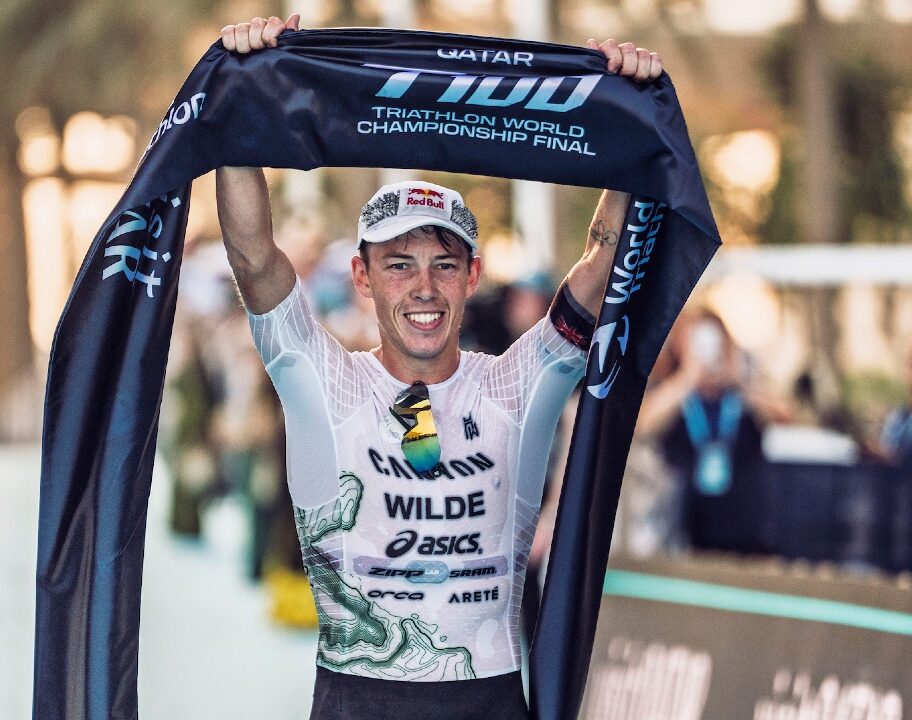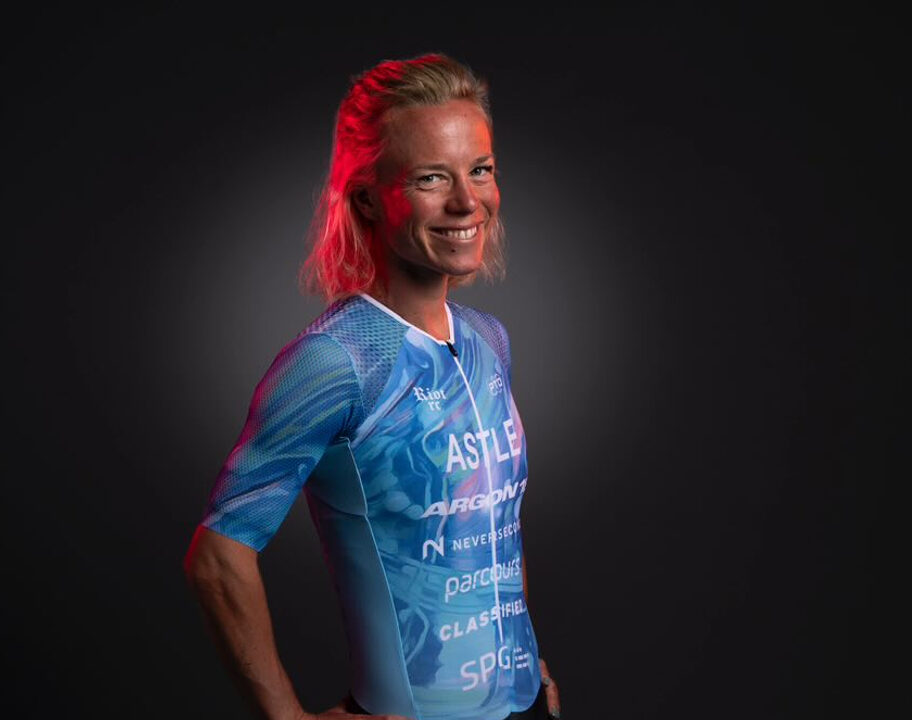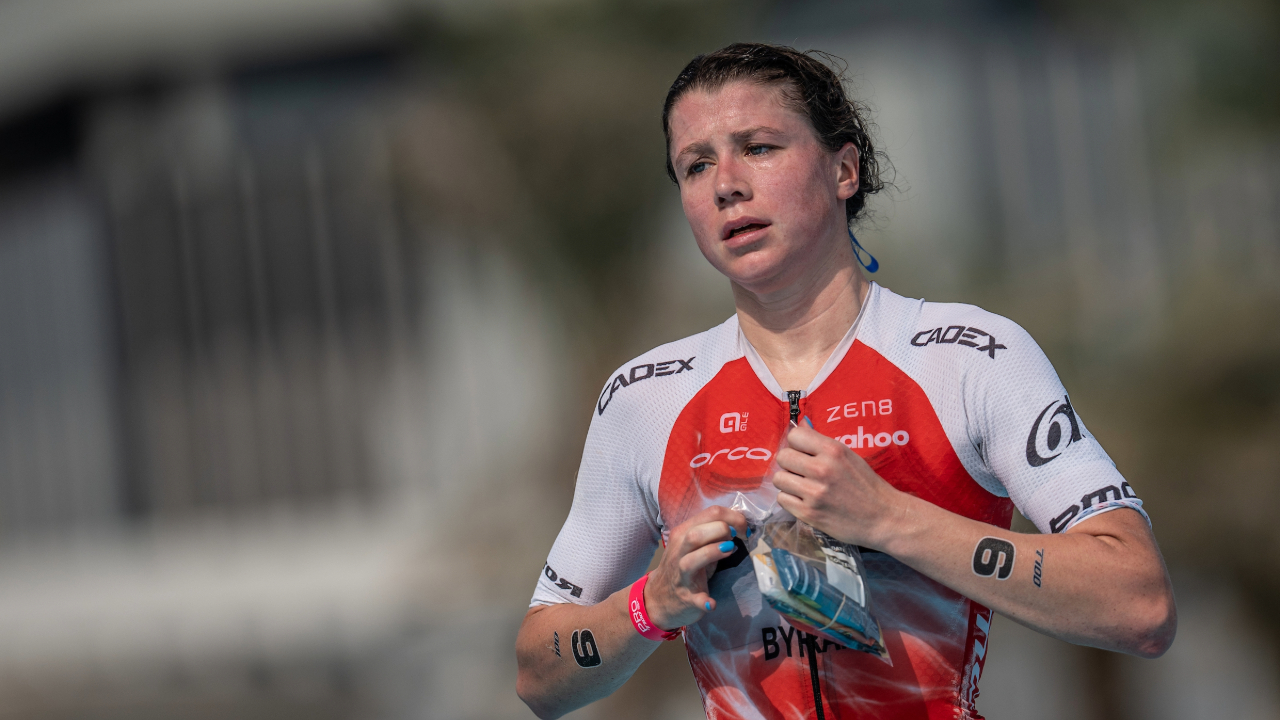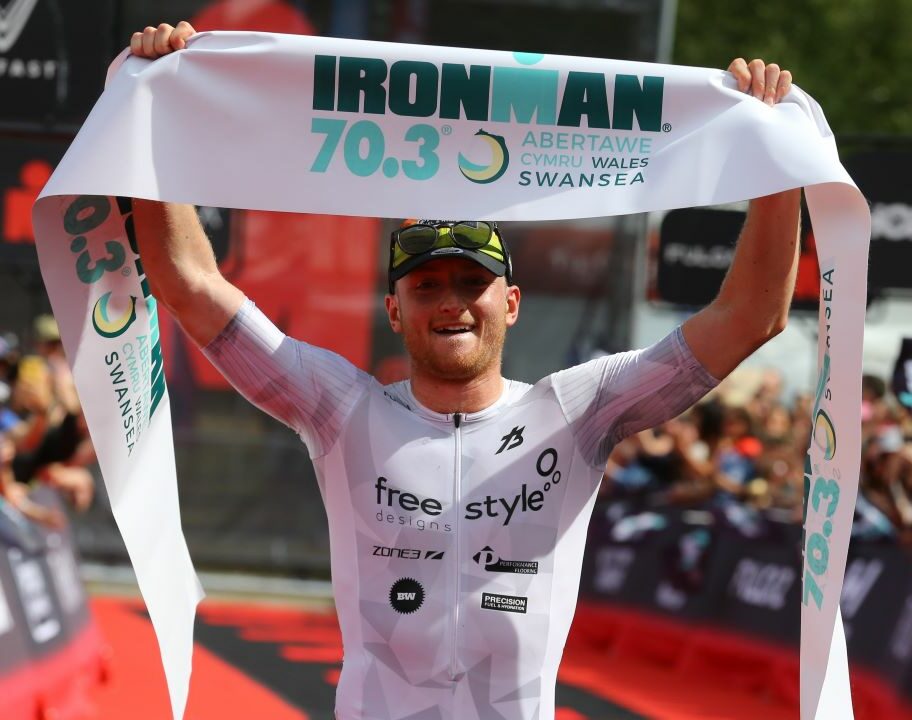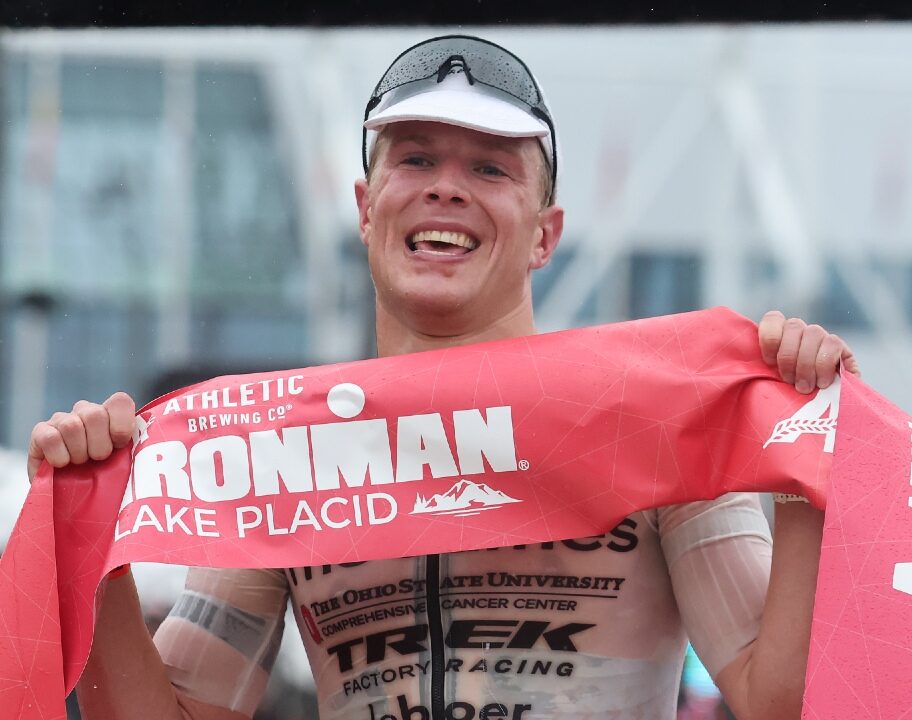Andy Salmon, CEO with British Triathlon for over six years, started his new role at Swim England earlier this month but just before then he sat down with TRI247 to look at the highs – and lows – of his tenure which included gold medal success at the Olympics and Paralympics in Tokyo as well as navigating the challenges of the global COVID pandemic.
High expectations
Asked about the highlights, he told us: “When you reflect on a question like this, it’s quite challenging as a CEO, because for me it was always about the team and the organisation and what the organisation could achieve. And when I say organisation, that includes all the athletes, all the volunteers.
“But if you start with performance and our elite athletes then my first World Championship was in Australia on the Gold Coast where I saw Vicky Holland winning the World Series. There was a real moment and it almost set an expectation.
“Our women were in dominant form. I remember the race in Montreal that year where starting the run we were in the first four places ahead of Katie Zaferes – that really stuck in my mind.
“And then fast forward to Tokyo where in performance terms, Georgia [Taylor-Brown]’s performance to take a silver with the puncture, it was just incredible. The mental fortitude that that took was amazing.
“And then the mixed relay – I’ve lost count of how many people have said to me that was the highlight of their whole Games. And not just the triathlon.
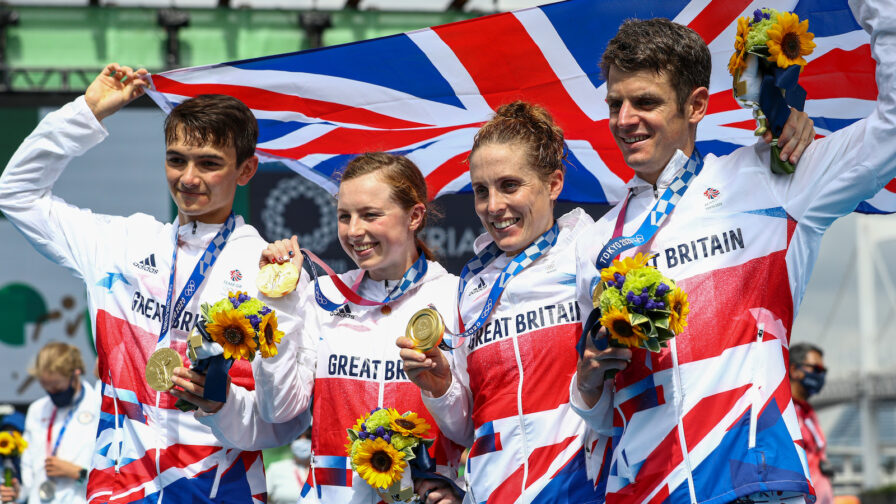
“That also saw Jonny Brownlee become the most decorated Olympic triathlete of all time and I think just the way he conducted himself after the relay, that really resonated with me and stuck with me.
“And I don’t think many people in the world would wish against Jonny being selected for Paris and maybe extending that medal haul even further.
‘Tokyo had everything’
“The Paralympics, seeing Lauren [Steadman] and George [Peasgood] do so well in their medal performances. But contrast that with Dave Ellis’s cruel, cruel battle with his mechanical and not being able to finish. And Claire Cashmore winning a bronze medal, but probably being unfairly penalised, and then going into the technical officials afterwards and thanking them so much for all the hard work, even after what had happened. So Tokyo, it had everything.
“The Commonwealth Games in Birmingham was another really emotional one. I was obviously responsible for Team England rather than Team Wales and Scotland, even though they’re British athletes.
“But one of my big memories is of England winning the relay, but being almost more concerned about how Wales were doing and how far ahead of Australia they were. And then I think it was when Georgia finished the last leg and the first thing she did was turn around and look for Non [Stanford] – and there she was coming in behind her to win that medal for Wales. So that was phenomenal.
“And my last really big memory around elite performance would be Non herself winning the European Championships in Munich. You might say not the biggest title that we’ve competed for over the last six years. But given it was her last race and it was a really top quality field in really hot conditions in Munich, that was amazing as well.”
‘Incredible people doing incredible things’
But Salmon knows that while performance – Olympic and Paralympic results in particular – are crucially important, that’s only part of the role.
He added: “I’m conscious those displays are very much in the public eye but there’s so much stuff behind the scenes that I’m really, really proud of.
“Our age-group team, as we call it, gets around 8,000 British Triathlon members, trying to qualify to compete for Great Britain, to go and race all over the world in various formats of the sport. And each year, typically there’s about 3,000 that go ahead and qualify.
“And I’ve been lucky enough to see them in action quite a few times over the six years. And it really brings a lump to the throat, partly of envy, because I know I’m not good enough to qualify for the team myself, but more to see those incredible people doing incredible things despite most of them have full time jobs and training around those full time jobs and family commitments – they’re borderline elite athletes.
It’s a joy to behold, and also to behold at all ages.
“To see British athletes coming in and winning the 85 to 90 age group, as we saw recently, was also fantastic.”
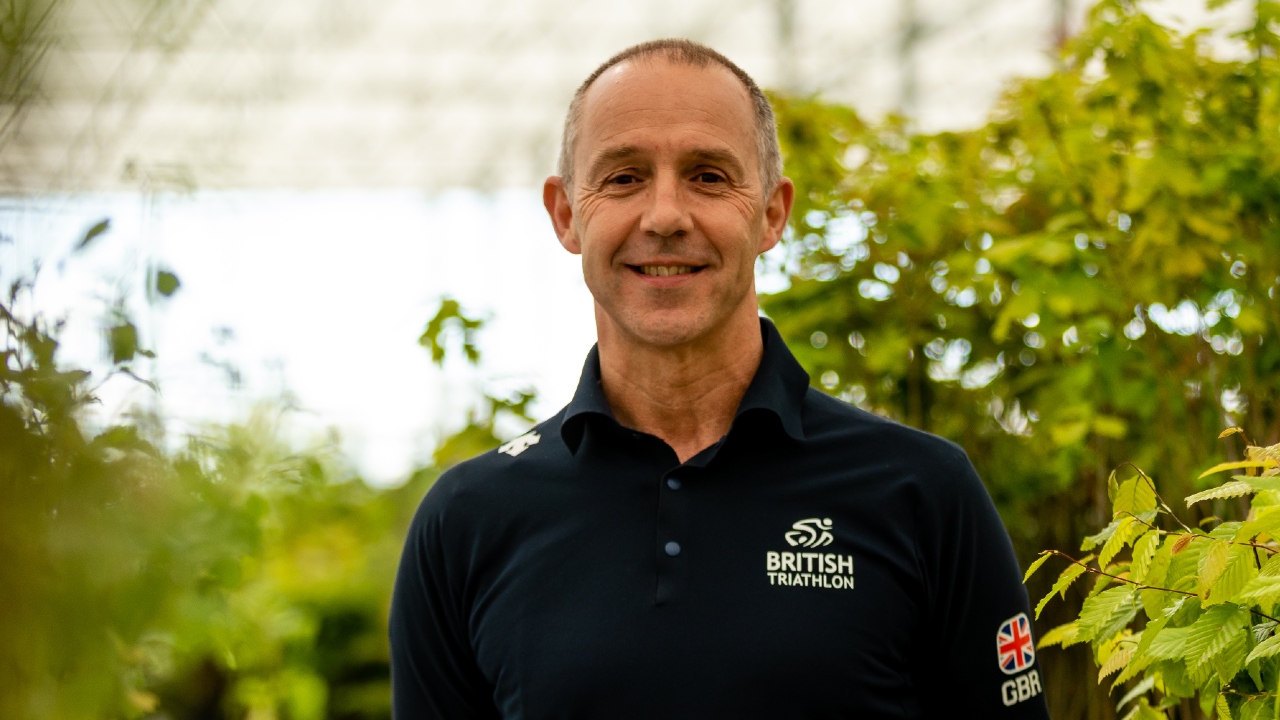
Bigger picture
We’ve spoken in detail to Salmon in the past about British Triathlon’s decision not to bid for a WTCS event in 2024, something he remains convinced was the right call.
But he hopes a real legacy will be forged by bringing the World Triathlon Para series to Swansea in 2022.
He explained: “We came back last year and we’re back again in 2024. The global need for that event was huge. It was definitely a missing part of our portfolio of events and we were so grateful to UK Sport, the Welsh government and Swansea City Council for making that possible. And I really hope that event continues for many years to come. It’s a really important event.
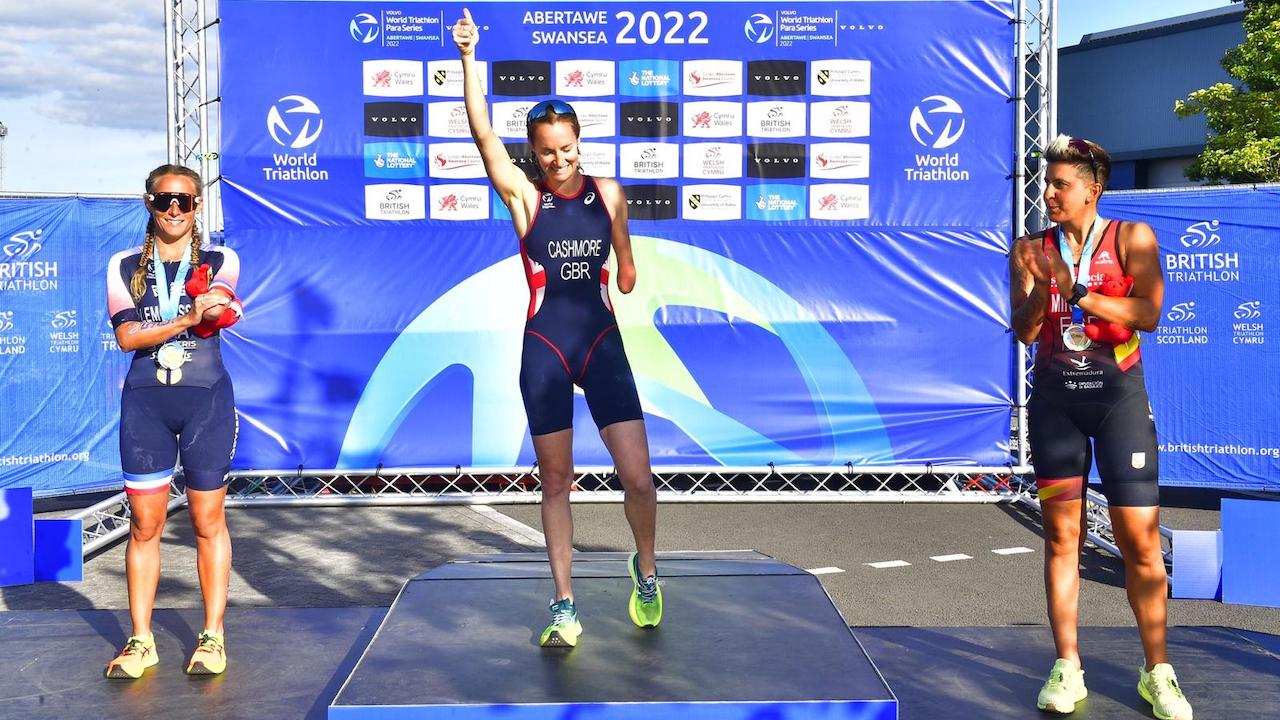
“And on the back of that we hosted the first ever international paratriathlon conference, inviting countries around the world to come to Swansea and engage in discussion about how we drive paratriathlon forward. So that was a real focus of mine. When I first started, I was hugely motivated to do better, not just for our elite paratriathletes, but for anybody with an impairment.
I hope that we have made some progress and that progress will continue.
“But it’s not all about that end of the sport, it’s also about the grassroots. We have a remit for the whole of the sport in Great Britain. And I’m really proud of our attempts to grow the sport and take it to a more diverse audience through that strategy. So working in local communities in ways that are relevant to that community, not just in ways that are relevant to us. Our Swim Bike Run programme that we launched last summer and our schools programme have got off to a really great start.”
Dealing with COVID
And of the global COVID pandemic, Salmon adds: “Everybody remembers just what a traumatic and unprecedented time that was. And there are many, many people probably reading this who would have dealt with much more adverse circumstances than we had to deal with. But nevertheless, we had to take a leadership role for triathlon.
“The strategy really went out the window with lockdown. We had to decide what we were going to do, what we were not going to do, and we took a really bold principles-led approach and we were commended not just across the triathlon industry, but across mass participation, really, for the role that we took with government in really forcing the issue of how we can safely return to mass participation events.
“So from a personal point of view, in terms of the small role I played in leading that piece of work, I’m incredibly proud of that as well.”
‘Lots of work to do’
But looking forward – and with half an eye on the tasks ahead for his successor Ruth Daniels, Salmon admits that unlike some other sports, triathlon in Britain hasn’t yet returned to pre-Covid levels: “Unfortunately not. I think we reacted to it really well and on the elite side it was, relatively speaking, easier. I can remember the guys driving around the country in vans, positing smart trainers and things like that, so the athletes could train at home and they could communicate with each other and race against each other virtually.
“But at the grassroots level, that’s where we really felt the impact, and we still haven’t recovered. If you look at the events up and down the country, we’re something like 75% compared to 2019 levels. We thought we would have recovered a bit more quickly than that. And I think that it’s easy to compartmentalise that and say that’s because of COVID In the first instance. It kind of was about COVID but it’s subsequently also been about cost of living, about inflation and all the economic challenges that we face as a country and across the world. So there’s lots to do.
“It would be naive to think that triathlon as a sport wouldn’t be affected by that. So we’ve still got lots of work to do, particularly helping clubs and event organisers to get the event levels back to where they were pre-Covid. If they’re successful, then we’re successful.
Testing times
And Salmon adds: “The things I haven’t been able to achieve is just as long, if not longer than the things I’m proud of. This job will never be done.
“This is not just the triathlon thing, but the sporting system in the UK. Each year it feels like we’re trying to do more with diminishing resource, and that doesn’t make an awful lot of sense.
If you’re running a business, an ordinary commercial business, you wouldn’t try and do more with less. It just isn’t sustainable.
“So this is the challenge that we face. So we’re trying to collaborate a lot more. We’re trying to collaborate within the sport of triathlon, but we’re trying to collaborate with other sports across Great Britain, where we have common interest and sustainability is one area where we’re really, really collaborating, and there are others as well.
“I think amongst my regrets are – and I could easily explain why we didn’t do this – is I wish we’d invested a bit more, a bit sooner in technology. The experience that our members and customers have with us technologically is not as slick as we would like it to be. And we have tried and failed and we’re currently trying again. And all being well, we’ll be investing this year in a bit of a digital transformation project, so that the customer experience is much more seamless and user friendly.
“And engaging more with our membership to add value to their experience is so important. They’re more like to carry on doing that for longer and do it more often, which is good for the whole sport and the whole ecosystem of the sport. So I think if I could go back and do it again. I think a bit more focus on those two areas.”








